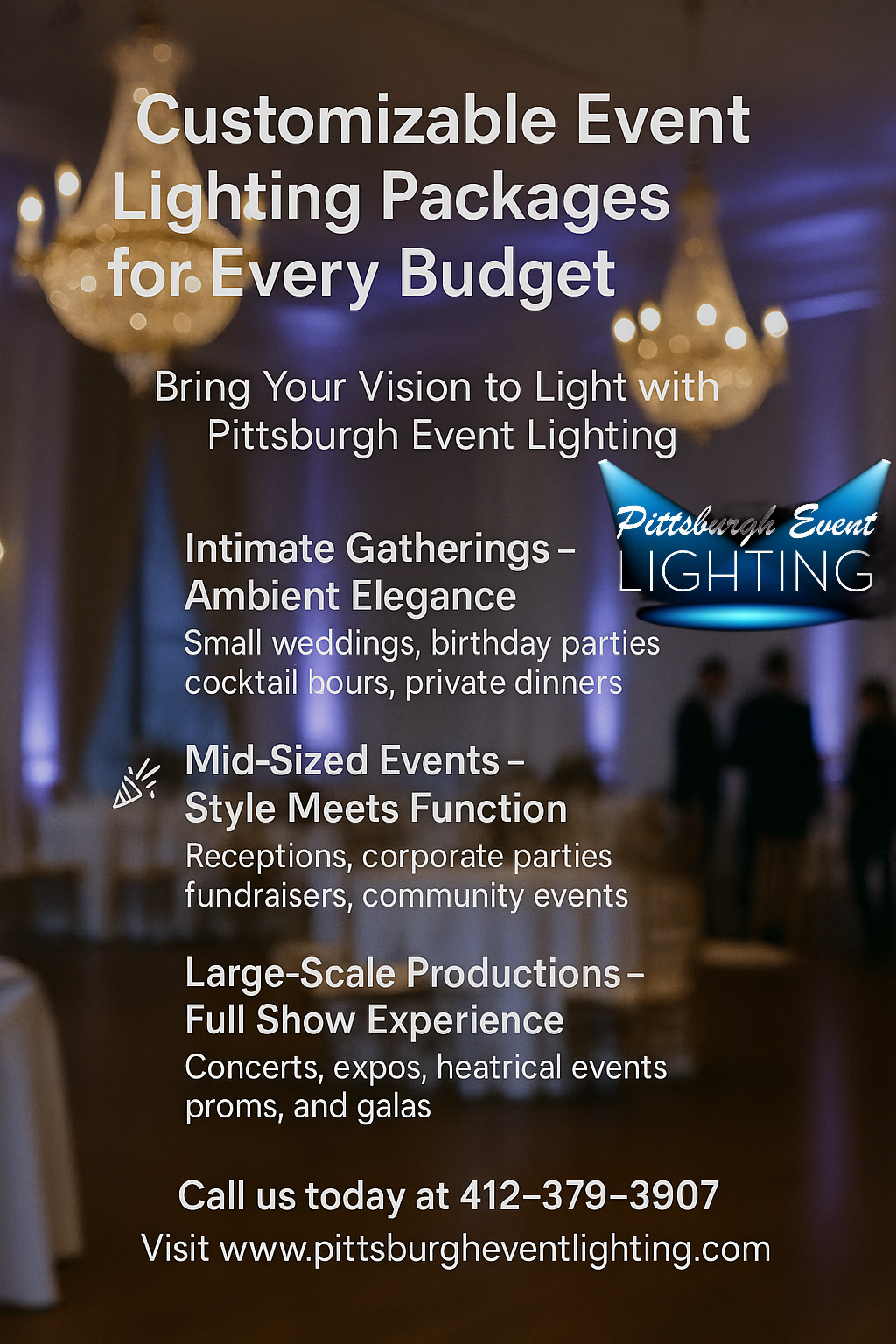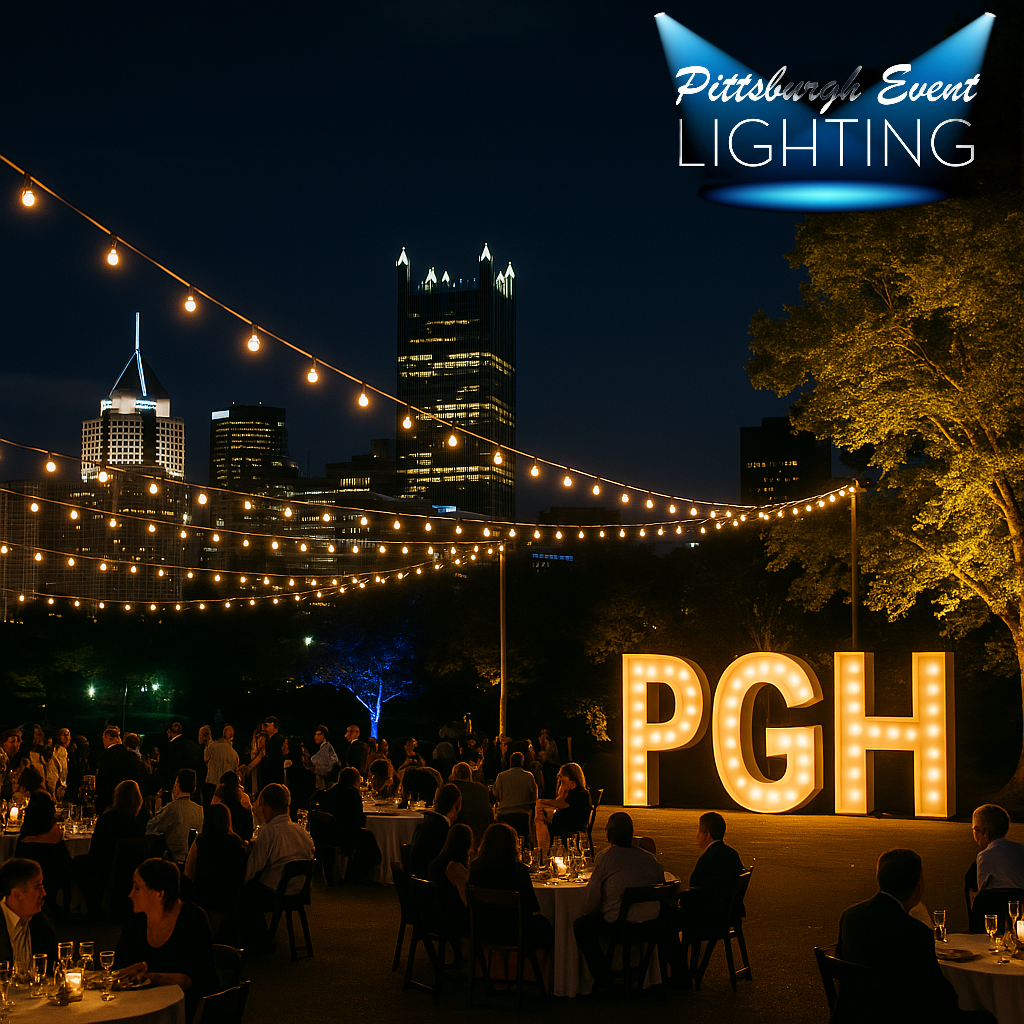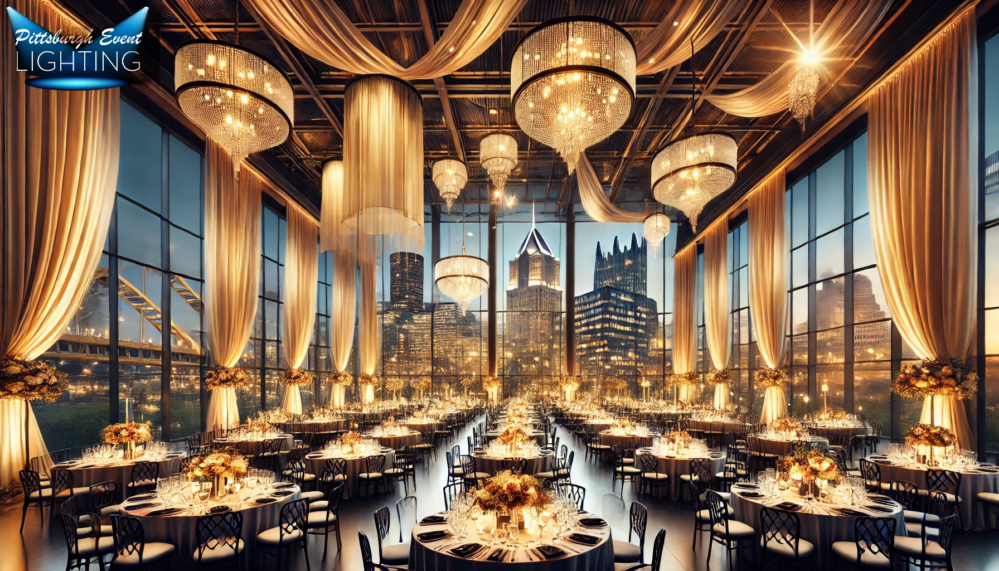The more you know about best practices for event lighting, the better chance you’ll have for creating an amazing experience for your guests.
After a few of our creative services team members joined an event lighting workshop with the Impact Lighting | Audio | Video team, we thought we’d share a few tips and tricks about lighting to better prepare you for communicating with lighting specialists.
1. How to Prepare for Lighting Your Event
During the walkthrough, take a mental note of what lights would work best with the given space. To be more precise, you can measure out the space with a laser measurer and measuring tape. Testing out lights and making small adjustments as needed is important to get it just right. In addition, asking the venue questions like how much power they can supply and what lighting has been new and popular recently is a really good idea to stay up to date with trends and avoid major problems like running out of power.
2. Keep Cost Tradeoffs in Mind
Before purchasing something, know the available types and brands, and be able to identify key differences. Know what to expect when you take the cheaper route. While the metal Gobo is only about $120 and the glass one is about $500, there are benefits of the glass Gobo that the steel one doesn’t have.
3. What’s Up With the Uplighting?
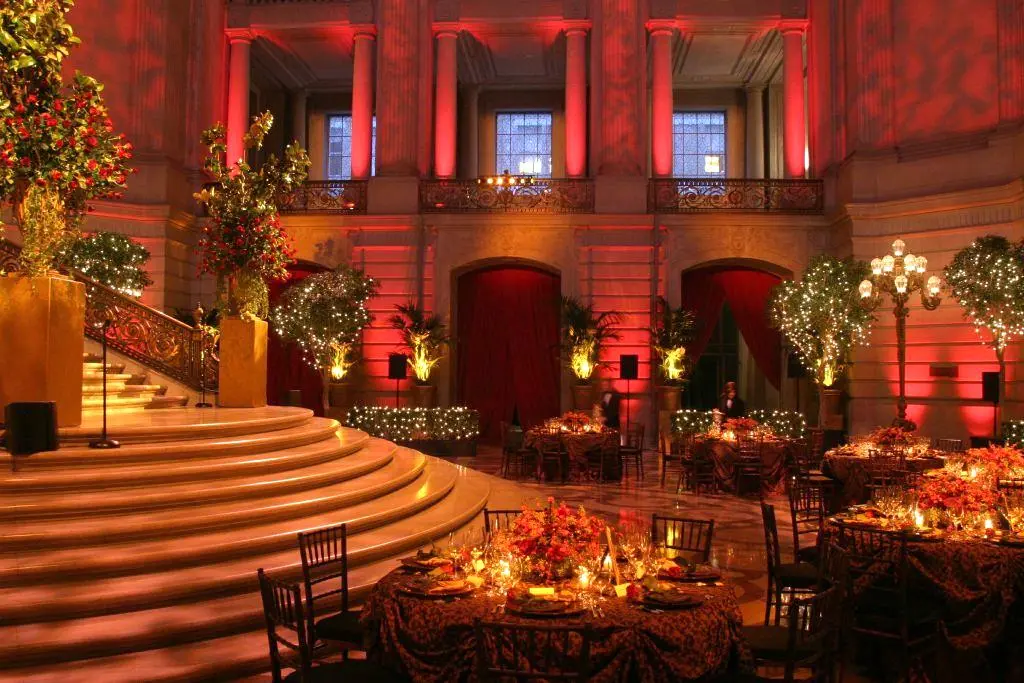
Uplighting is the most basic form of event lighting there is, and it’s extremely versatile. This type of lighting enhances a room anywhere and is most common to be placed against walls and drapes. The Par 38 light is the main source of lighting that has been used for years. This type of light was used mainly 6-7 years ago but has transitioned to LED lighting which uses more modern technology. While LED lights are on the pricey side, the battery life lasts longer (about eight hours) and is a more lightweight, convenient light. The old Par 38 light takes hours to set up and the LED only takes minutes. Even though there are a few details being worked out about LED color projections, these lights have changed the game for lighting professionals.
4. Essential Ingredients of Bar & Buffet Lighting
Bar and buffet lighting are essential for just about any event. It highlights specific areas and allows people to be aware of where food and drinks are and to see how much effort was put into making them. Signage and company logos are also often lit up to amplify specific areas and draw attention. This type of lighting is often included in the proposal but is crucial to confirm your specific needs when communicating the event details with your vendors.
5. Know About Ambient Light Washes
Ambient light washes are also very common and can set the tone of an event from the moment you walk in. They are useful because they can reach all corners of the space, not just specific areas. The Par Can light is used for this type of lighting and has been around for over 35 years and may not ever change. These lights are often also used in theatrical performances to light up a large area. At most events, ambient light wash can range in varying tones of warm whites so it doesn’t distract guests from the main attractions.
6. Detect the Differences in How Pattern Washes Work
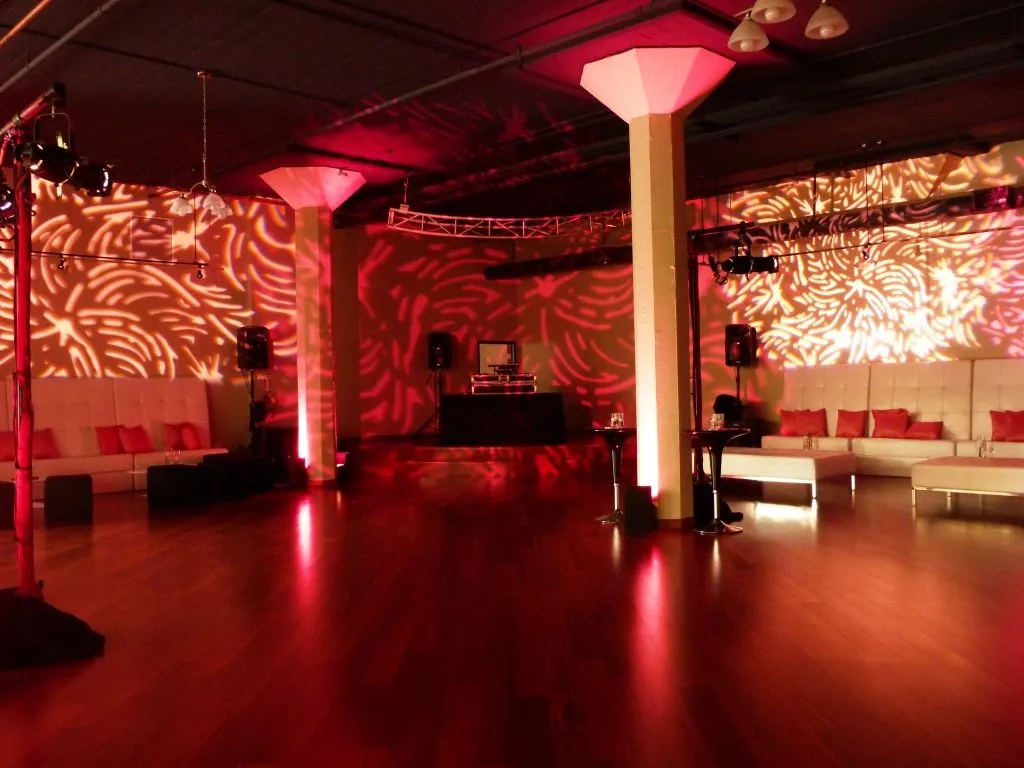
Pattern washes add design elements to lighting and can really ignite an idea or company. There are two main types of “Gobos” which are any type of device that projects a pattern using light and shadows, one being made out of metal and one made out of glass. Metal Gobos are limited to just displaying a company logo or a design outline. Glass Gobos allow for color and detail to shine through, bringing a logo or design to life. These washes slide in right over the light almost like a lens. It’s also important to note that Glass Gobos are more expensive than metal ones.
7. Spotting the Ins & Outs of Spotlighting
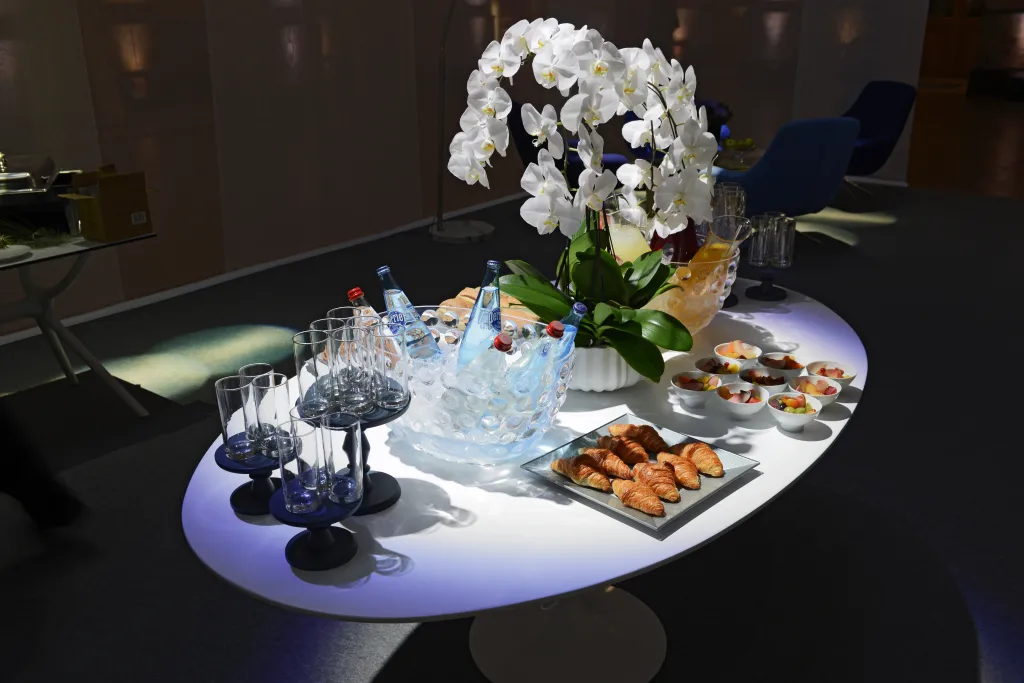
Beware, this type of lighting is the most difficult to execute. When done correctly though, it can take an event to the next level. The purpose of this type of lighting is to accent smaller decorative pieces like flowers and centerpieces. The majority of the time, it is a direct light hanging down form the ceiling IF the venue is open to that and has enough room. Not all spaces provide opportunities for this type of lighting so you must take the time to measure the space and assess the situation before going for it. If spotlighting is applied to a guest dining table, caution needs to be taken not to accidentally direct the light so it gets in guests’ eyes.
8. Check Out How Market String Lights Are More Versatile Than You Think
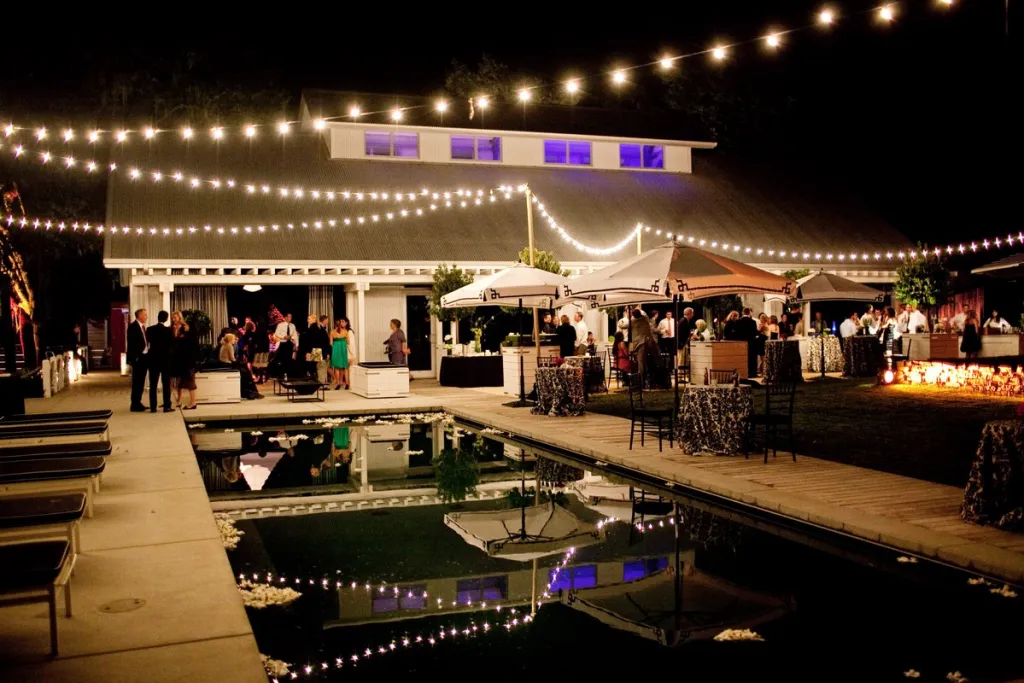
If you’ve been to any outdoor event in the last few years, you’ve seen market string lights and are aware of what they look like and how they work. What most people don’t realize about them is their widespread use. They not only look great outside but can complement an indoor event as well. You can do a lot with them in regards to appearance such as create a circus look with a taller pole in the middle and shorter ones on the outside, create lit-up pathways, trim the perimeter of a venue, and much more. Market lights are inexpensive and have a huge impact, making them one of the best light decor purchases.
There you go — we hope you find these ins and outs of lighting considerations to be useful for your next event planning session!







